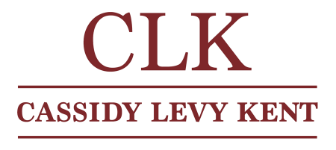Best Lawyers Near You in Edmonton, Alberta for Public Procurement Law
Practice Area Overview
Government contracting is big business in Canada. It is estimated that more than CDN $100 billion in purchases of goods, services, and construction are made annually by federal, provincial, and local government departments and agencies. The spending of public funds requires a heightened degree of transparency and openness to ensure that governments award contracts to suppliers who offer best value and who provide best solutions. Within the realm of government purchasing and contracting in Canada, there is a dizzying array of statutes, regulations, policies, trade agreements, by-laws, directives, and guidance documents that frame how those activities are carried out.
At the federal level, most government purchasing is subject to the obligations found within the procurement chapters of various trade agreements like the North American Free Trade Agreement and the revised World Trade Organisation – Agreement on Government Procurement. These obligations, which have been enacted into law, require covered federal entities to structure procurement processes in a fair (to all potential suppliers), open, and competitive manner and to evaluate bids strictly in accordance with the terms and conditions of the solicitation.
The objective of the procurement obligations is to ensure that government’s give suppliers a fair chance to bid for, and receive, government contracts. Non-competitive contract awards are discouraged, and at the federal level, are very much the exception. Suppliers are entitled to significant visibility into the evaluation and weighting of factors that will be used to determine the winning bidder. Most federal procurement processes are subject to a timely review by the Canadian International Trade Tribunal (CITT), Canada’s federal bid challenge authority.
Many provincial governments and agencies have enacted policies and directives that guide purchasing within their respective jurisdictions. While not as prescriptive as the federal purchasing regime, provincial purchasing generally respects the procurement obligations contained in the Agreement on Internal Trade, an interprovincial/federal trade agreement. However, unlike the federal contracting world, there is no equivalent CITT bid challenge authority to whom disgruntled bidders at the provincial level can look for a quick and effective remedy. Bidders who feel unfairly treated must exercise their legal recourse through the court system, which for many potential litigants, is an unattractive option given the cost and slower speed of that litigation pathway.
Local government have enacted by-laws within which procurement and contracting is conducted. Like at the federal level, these by-laws provide a detailed framework which guide government officials and bidders/contractors. Most local government entities work hard to respect the obligations contained in the by-laws, knowing that a material departure from those obligations could result in the procurement process being declared unlawful by the courts.
The labyrinth of government procurement and contracting in Canada can be bewildering. However, companies are best served by spending the time and effort to understand the purchasing and contracting regime, before they jump into a procurement or contracting opportunity. Potential government suppliers need to know up front the obligations and opportunities arising from government procurements and contracting. Time and effort spent at the front end will ensure that a suppliers’ rights and entitlements are protected, and that the resulting contractual obligations and requirements are clearly understood before deal closing.

Lawyers who have a subscription to profiles appear first.
Would you like to claim your lawyer profile?
Contact UsOur Methodology
Recognition by Best Lawyers is based entirely on peer review. Our methodology is designed to capture, as accurately as possible, the consensus opinion of leading lawyers about the professional abilities of their colleagues within the same geographical area and legal practice area.
The Process
Best Lawyers employs a sophisticated, conscientious, rational, and transparent survey process designed to elicit meaningful and substantive evaluations of the quality of legal services. Our belief has always been that the quality of a peer review survey is directly related to the quality of the voters.






